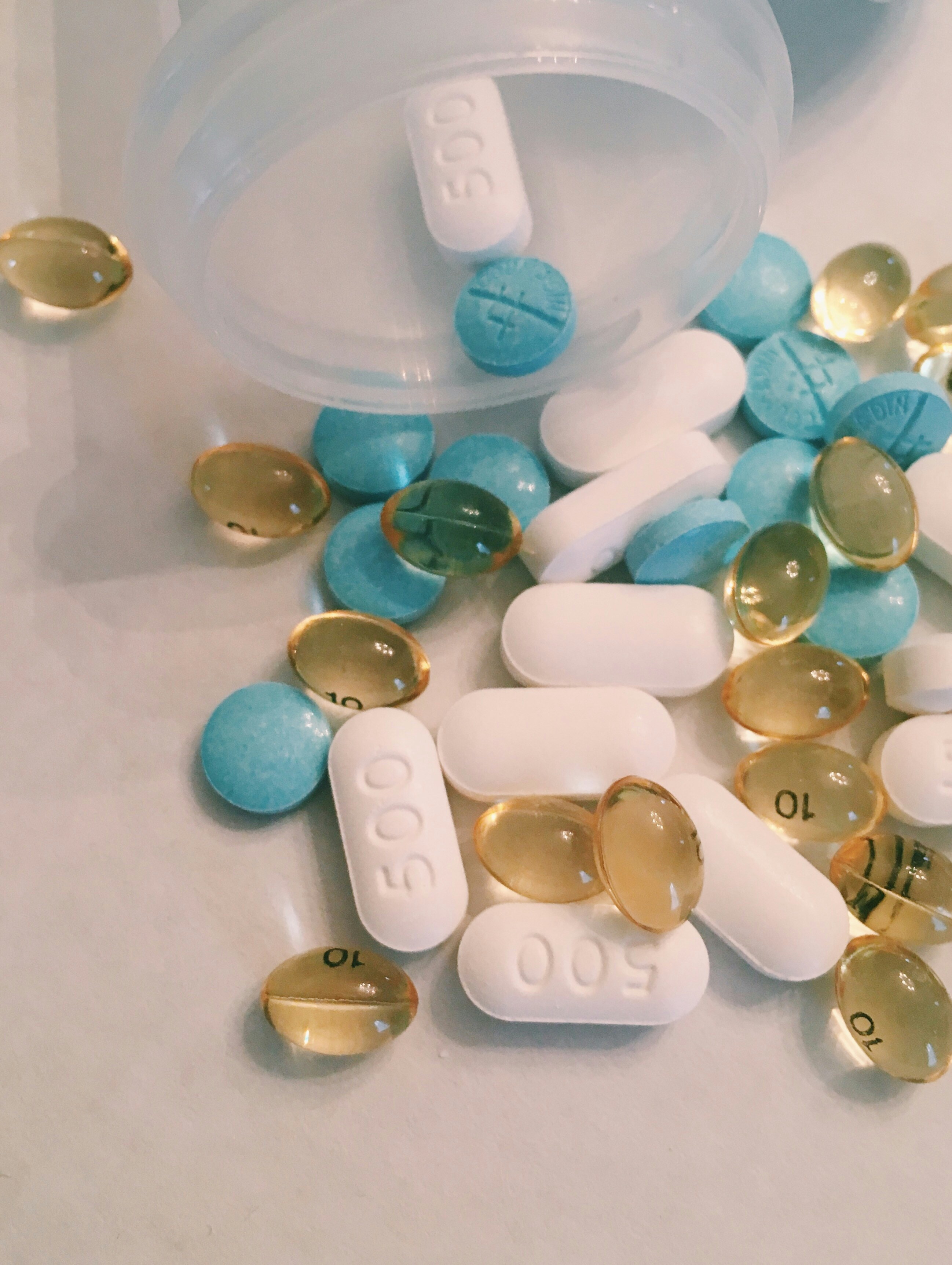
Are you tired of relying on over-the-counter anti-inflammatory medications to ease your aches and pains? Well, you’ll be pleased to know that there are natural alternatives available that may provide similar relief. This article explores the potential benefits of natural remedies, such as herbal supplements, dietary changes, and lifestyle adjustments, that could help reduce inflammation and promote overall well-being. Say goodbye to relying solely on medication and discover the wonders of natural alternatives.
Herbal Remedies
When it comes to finding natural alternatives to over-the-counter anti-inflammatory medications, herbal remedies can be an excellent option. Turmeric, for instance, is a powerful herb known for its anti-inflammatory properties. It contains an active compound called curcumin, which has been shown to help reduce inflammation in the body. Ginger is another herb that is often used for its anti-inflammatory effects. It contains gingerol, a compound that can help reduce pain and inflammation. Boswellia, also known as Indian frankincense, has been used for centuries to treat inflammatory conditions such as arthritis. Devil’s Claw is another herb that has been used traditionally to relieve inflammation and pain. Lastly, there is White Willow Bark, which contains a compound called salicin, a natural pain reliever often used as an alternative to aspirin.
Essential Oils
Essential oils are highly concentrated plant extracts that can be used for various purposes, including reducing inflammation. Lavender oil, for example, is known for its calming and relaxing properties, but it can also help reduce inflammation and pain. Eucalyptus oil is another essential oil that has anti-inflammatory effects. It can be used topically or inhaled to alleviate inflammation and improve respiratory function. Peppermint oil is well-known for its cooling sensation, which can provide relief from inflammation. Additionally, rosemary oil is known for its ability to reduce inflammation and soothe sore muscles.

Supplements
Supplements can also play a significant role in reducing inflammation in the body. Omega-3 fatty acids, found in fish oil, have been shown to have anti-inflammatory effects. They can help reduce inflammation in the body, especially in conditions like arthritis. Vitamin D is another supplement that can help reduce inflammation. It plays a crucial role in regulating the immune system and has been linked to decreased inflammation levels. Glucosamine and chondroitin are popular supplements often used to manage joint pain and inflammation associated with conditions like osteoarthritis. Another supplement to consider is S-Adenosylmethionine (SAMe), which has been shown to have anti-inflammatory effects and may help reduce pain and inflammation caused by arthritis.
Dietary Changes
Making dietary changes can be an effective way to manage inflammation naturally. Including anti-inflammatory foods in your diet can help reduce inflammation levels in the body. Some examples of anti-inflammatory foods include fresh fruits and vegetables, which are rich in antioxidants that help reduce inflammation. Fish and omega-3-rich foods, such as salmon and walnuts, are also beneficial in reducing inflammation. Whole grains, like quinoa and brown rice, are rich in fiber and can help reduce inflammation. Healthy fats, such as those found in olive oil and avocados, have been shown to have anti-inflammatory properties and can help manage inflammation in the body.

Acupuncture
Acupuncture is a traditional Chinese medicine approach that involves the insertion of thin needles into specific acupuncture points in the body. This practice aims to stimulate the body’s natural healing response, including reducing inflammation. By targeting specific acupuncture points, the flow of energy, or qi, can be restored, helping to reduce inflammation and relieve pain. Additionally, acupuncture has been shown to promote the release of endorphins, which are natural painkillers in the body. This combination of reducing inflammation and increasing pain-relieving substances makes acupuncture a viable option for managing inflammatory conditions.
Physical Therapy
Physical therapy can be an excellent alternative to over-the-counter anti-inflammatory medications, especially for musculoskeletal conditions. Exercise and stretching can help strengthen the muscles around the affected area, promoting healing and reducing inflammation. Joint mobilization techniques, performed by a trained physical therapist, can help improve joint mobility and reduce inflammation. Hot and cold therapy, such as applying hot or cold packs to the affected area, can help alleviate inflammation and provide pain relief. These non-pharmacological treatment options can be effective in managing inflammation without the use of medication.
Mind-Body Techniques
Mind-body techniques, such as yoga, meditation, and deep breathing exercises, can help reduce inflammation by promoting relaxation and stress reduction. Yoga combines physical movement with deep breathing and meditation, which can help decrease cortisol levels and inflammation in the body. Meditation, on the other hand, focuses on quieting the mind and promoting mindfulness, which can help reduce stress and inflammation. Deep breathing exercises, like diaphragmatic breathing, can activate the body’s relaxation response and decrease inflammation. These mind-body techniques can be used as part of a holistic approach to managing inflammation.
Heat and Cold Therapy
Heat and cold therapy can be simple yet effective ways to manage inflammation and provide pain relief. Applying a hot compress to the affected area can help improve blood flow, reduce muscle tension, and decrease inflammation. A hot compress can be created using a hot water bottle, heating pad, or warm towel. Cold therapy, on the other hand, involves applying a cold compress to the affected area. Cold therapy can help numb the area, reduce swelling, and provide temporary pain relief. Cold compresses can be made using ice packs or even a bag of frozen vegetables wrapped in a towel.
Alternative Topical Creams
Topical creams containing natural ingredients can provide localized relief from inflammation and pain. Arnica, a plant in the sunflower family, has been used for centuries to reduce inflammation and bruising. Capsaicin, a compound found in chili peppers, can also be used topically to relieve pain and reduce inflammation. Comfrey, a herb known for its healing properties, can be used as a topical cream to soothe inflammation and promote healing. Menthol, found in many topical creams, can provide a cooling sensation and temporarily relieve pain and inflammation.
Stress Reduction
Stress can contribute to inflammation in the body, so reducing stress levels is essential in managing inflammation. Massage therapy can help reduce stress and promote relaxation, which in turn can help decrease inflammation levels. Aromatherapy, the use of essential oils for therapeutic purposes, can also help reduce stress and inflammation. Relaxation techniques, such as deep breathing exercises and progressive muscle relaxation, can help calm the mind and reduce stress, leading to decreased inflammation in the body.
In conclusion, when it comes to finding natural alternatives to over-the-counter anti-inflammatory medications, there are various options available. Herbal remedies, essential oils, supplements, dietary changes, acupuncture, physical therapy, mind-body techniques, heat and cold therapy, alternative topical creams, and stress reduction techniques can all play a role in managing inflammation naturally. The key is to find the combination of approaches that works best for you and consult with a healthcare professional before starting any new treatment regimen.



